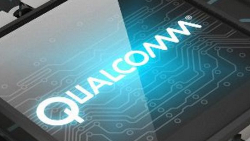FTC files suit against Qualcomm, citing anti-competitive deal it struck with Apple

The FTC today filed a suit against Qualcomm, charging the chip maker with using unfair anti-competitive tactics in order to gain advantages from its competitors. According to the FCC, Qualcomm reached a deal with Apple that would make Qualcomm the exclusive supplier of certain baseband chips to Apple, in exchange for reduced royalty payments. The deal ran from 2011 to last year and prevented Apple from using baseband processors on the iPhone made by any other manufacturer except for Qualcomm. Currently, Qualcomm and Intel share the job of producing modem chips used on the Apple iPhone 7 and Apple iPhone 7 Plus.
While Apple did lock itself into taking these chips from Qualcomm, it was able to work out lower royalty costs allowing it to save money on the production of the iPhone. The deal came about as a result of Apple's request to Qualcomm to lower the royalty payments it had to pay the chip maker. Qualcomm agreed to lower those payments with the provision that Apple would use its chips exclusively. The FTC says that this violates U.S. competition law and is asking the court to bar Qualcomm from entering into future anti-competitive deals.
source: FTC.gov (PDF) via PCMag
Qualcomm responded with a statement denying any wrong doing on its part. In addition, it said that the central thesis to the FTC's case is incorrect. You can check out the court filing by clicking on the sourcelink.
"(Qualcomm) never withheld or threatened to withhold chip supply in order to obtain agreement to unfair or unreasonable licensing terms. The FTC's allegation to the contrary — the central thesis of the complaint — is wrong."-Qualcomm
source: FTC.gov (PDF) via PCMag













Things that are NOT allowed: